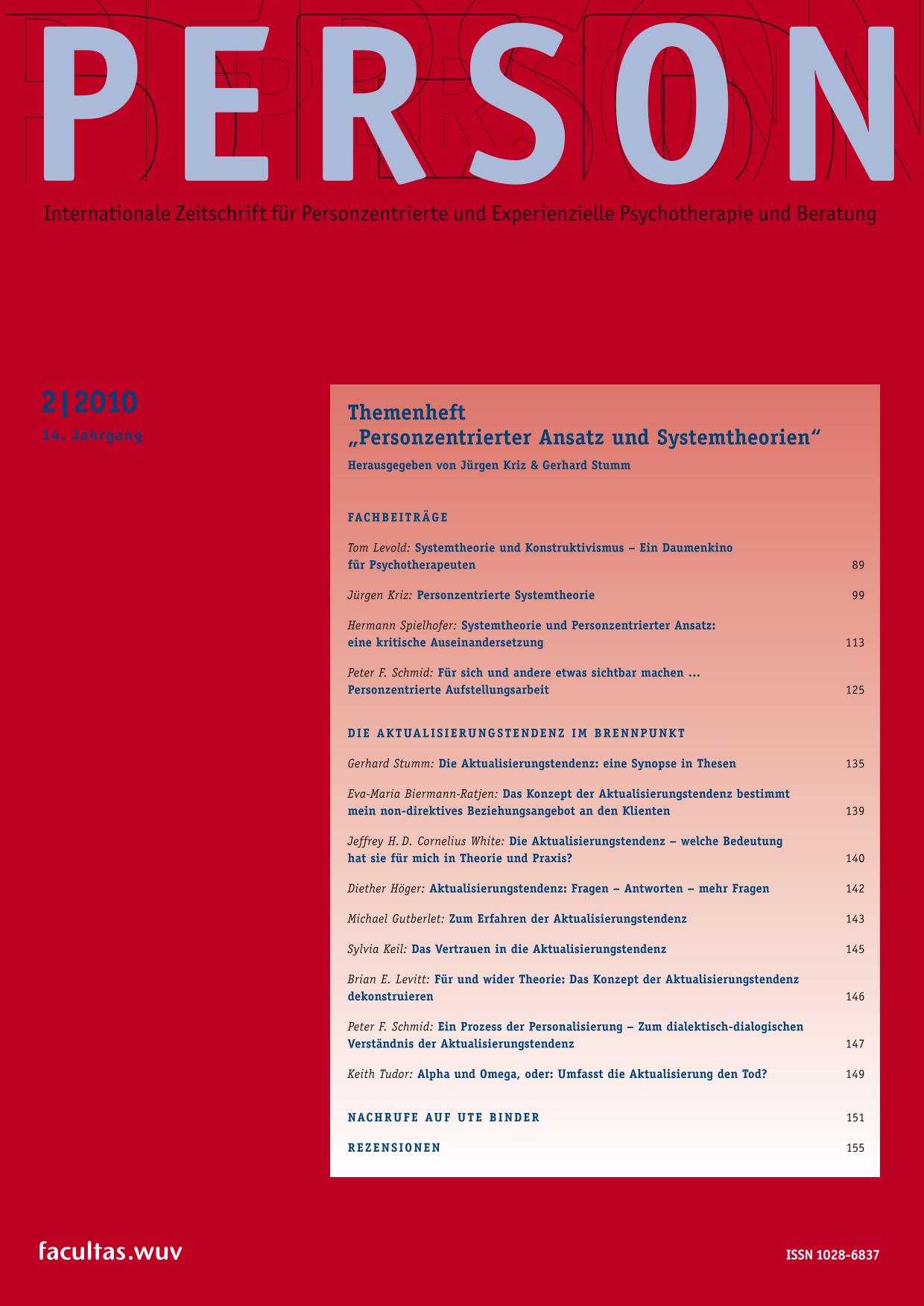Personzentrierte Systemtheorie
Main Article Content
Article Sidebar
Abstract
Person-Centered Systems-Theory. The objective of this paper is to detail the “Person-Centered Systems-Theory” without using a focus on models of interdisciplinary systems theory, instead it takes an experience oriented perspective with a focus on core principles that enables an understanding of clinical and psychotherapeutic processes. Particular interest is paid to the emergence and transition of sense and meaning and to the interactions between different system levels – namely, bodily, psychic, interactive, and societal-cultural processes. Meaning reduces cognitive complexity just as patterns of interaction order the huge, chaotic space of possible actions. Such self-organized dynamic order emerges by facilitating the realization of inherent possibilities. This contrasts everyday understanding of order, imposed only by external organization. But this corresponds well with the concept of actualization or self-actualization in Rogers’ Person-centered Approach. It is argued, that the actualizing tendency is neither a belief nor an assumption in Rogers’ theory, but a simple description of the consequences of seriously taking interconnectedness and relationships in processes into account.
How to Cite
Downloads
Article Details
Person-centered Systems Theory, actualizing tendency, sense, meaning, organism, self, interaction, culture

